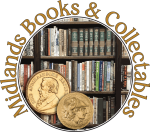Author:
Publish Date:
Publisher:
Cover Type:
Condition:
1972 edition of the Magic World of the Xhosa.
R250.00
“The Magic World of the Xhosa” by Aubrey Elliot is a captivating exploration of the culture, traditions, and folklore of the Xhosa people, an ethnic group native to South Africa. The book delves into the myths, rituals, belief systems, and social structures that have shaped Xhosa life, presenting a rich and detailed portrait of one of South Africa’s largest and most influential cultural groups.
